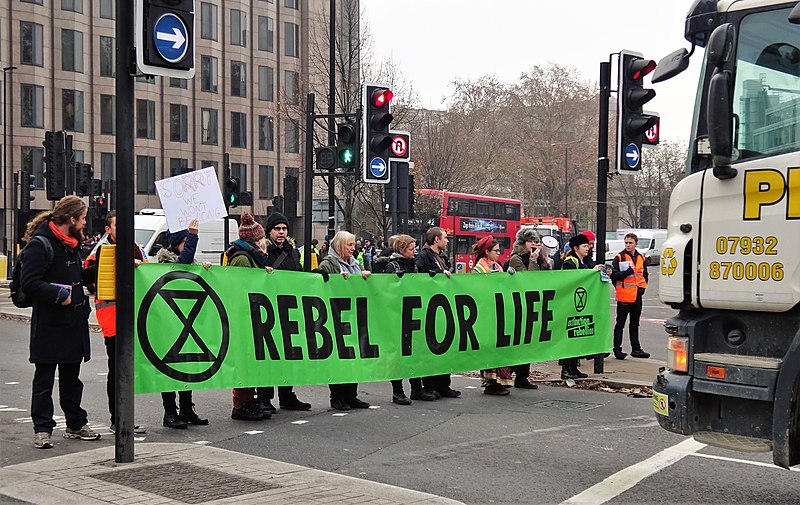The group Extinction Rebellion wants net zero greenhouse gases by 2025.
The protest group Extinction Rebellion thinks we’re on the cusp of a “mass extinction”where climate change causes water shortages, crop failure, widespread flooding and the death and/or displacement of millions of people and animals.
It wants greenhouses gases to be reduced to net zero by 2025. To draw attention to its cause, its activists have blocked roads, glued themselves to trains, stripped in the Houses of Parliament and chained themselves to Jeremy Corbyn’s fence.
Greenhouse gases are created in all sorts of ways, many of which are woven deeply into our economies and lives. We put greenhouse gases into the atmosphere when we use a car (or train, or bus) to get to work, and when we fly in a plane for our holidays. We do it every time we turn on a light, our oven, our TV. The clothes we buy and the food we eat comes from factories and farms that emit greenhouse gas as a byproduct, as do the landfills that our old clothes and food packaging ends up in.
Achieving zero greenhouse gas emissions wouldn’t necessarily mean giving all those things up. We could power our lives with renewable energy sources instead. New technologies that grow meat in vats could do away with methane-producing cows and other livestock.
Similarly, we could keep emitting greenhouse gases but find ways to take them back out of the atmosphere - through things like using fancy tech to suck carbon dioxide back out of the air or just planting more trees.
The problem is that none of these options are currently reliable/cheap/developed enough to meet Extinction Rebellion’s 2025 deadline. So in practice they are asking people to make huge changes to their lives - giving up meat, only buying clothes every few years, restricting travel to local areas, etc.
Most people don’t yet seem inclined to make such big cuts to their quality of life. Extinction Rebellion's protests are raising lots of debates about how much emphasis economies should put on individual wishes and current prosperity versus the rights and wealth of future generations.
Read our explainer on: economic choices and the environment.

